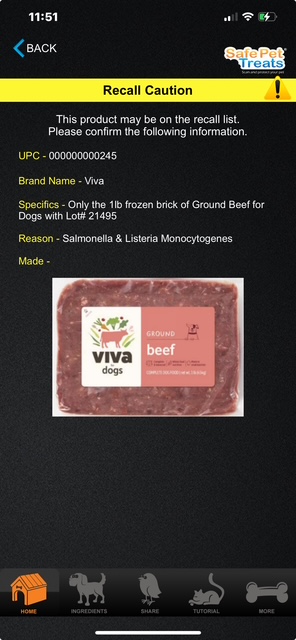In Fischbein v. IQVIA, Inc., a case involving alleged violations of the Telephone Consumer Protection Act (TCPA), 47 U.S.C. § 227(b)(1)(C), a federal district court in the Eastern District of Pennsylvania denied plaintiff Richard E. Fischbein, M.D.’s motion for class certification after he failed to meet his burden on both ascertainability and predominance requirements. Fischbein’s class action suit alleged that the defendant, IQVIA, Inc., a research organization in the health information industry, sent unsolicited fax advertisements to Fischbein and more than 25,000 other healthcare professionals that invited them to share information about their patients and treatment practices in exchange for points that could be redeemed for rewards. IQVIA argued that the proposed class was not ascertainable, because there was no reliable and administratively feasible mechanism to determine whether putative class members received the faxes at issue on traditional, standalone fax machines or through online fax services. Fischbein, however, argued that the TCPA applies to all faxes, no matter how received. The court held that the plain language of the TCPA – which prohibits the use of “‘any telephone facsimile machine, computer, or other device to send, to a telephone facsimile machine, an unsolicited advertisement’” – clearly distinguished between the type of equipment used to send the unsolicited advertisement and the type of equipment that receives... The post Equipment Failure: Eastern District of Pennsylvania Denies Certification to TCPA Class Involving Unsolicited Faxes Because TCPA Applies Only to Standalone Fax Machines appeared first on Gibbons Law Alert.
|
In Fischbein v. IQVIA, Inc., a case involving alleged violations of the Telephone Consumer Protection Act (TCPA), 47 U.S.C. § 227(b)(1)(C), a federal district court in the Eastern District of Pennsylvania denied plaintiff Richard E. Fischbein, M.D.’s motion for class certification after he failed to meet his burden on both ascertainability and predominance requirements. Fischbein’s class action suit alleged that the defendant, IQVIA, Inc., a research organization in the health information industry, sent unsolicited fax advertisements to Fischbein and more than 25,000 other healthcare professionals that invited them to share information about their patients and treatment practices in exchange for points that could be redeemed for rewards. IQVIA argued that the proposed class was not ascertainable, because there was no reliable and administratively feasible mechanism to determine whether putative class members received the faxes at issue on traditional, standalone fax machines or through online fax services. Fischbein, however, argued that the TCPA applies to all faxes, no matter how received. The court held that the plain language of the TCPA – which prohibits the use of “‘any telephone facsimile machine, computer, or other device to send, to a telephone facsimile machine, an unsolicited advertisement’” – clearly distinguished between the type of equipment used to send the unsolicited advertisement and the type of equipment that receives it, limiting receipt of the advertisement to a “telephone facsimile machine.” To be a “telephone facsimile machine,” the receiving equipment must “(1) receive the fax transmission over a ‘regular telephone line,’ and (2) have the capacity to print the fax ‘onto paper’” (quoting TCPA § 227(a)(3)). Accordingly, the court held, “the plain language of the TCPA protects only those who receive unsolicited advertisements on a stand-alone fax machine, which, unlike online fax services, has the built-in capacity to print onto paper.” While relying solely on the plain language of the statute, the court noted that numerous judicial opinions, including a case in the Fourth Circuit, Career Counseling, Inc. v. Amerifactors Fin. Grp., LLC , whose reasoning the court followed, as well as the Federal Communications Commission’s (FCC) declaratory ruling in In the Matter of Amerifactors Fin. Grp., LLC, bolstered its holding. That analysis is consistent with the Supreme Court’s very recent holding in McLaughlin Chiropractic Assocs. v. McKesson Corp. – that district courts are not bound to the FCC’s ruling in Amerifactors but, rather, should interpret the TCPA “as courts traditionally do under ordinary principles of statutory interpretation, affording appropriate respect to the agency’s interpretation.” Because receipt of an unsolicited fax advertisement on a “telephone facsimile machine” is a required element of a TCPA claim, Fischbein had to demonstrate that there was a reliable and administratively feasible mechanism for ascertaining whether putative class members received such faxes on standalone fax machines. Yet, based partly on the testimony of Fischbein’s own expert, the court found that “the only way to determine which health care providers received faxes by way of a traditional, stand-alone fax machine is through ‘extensive and individualized fact-finding.’” That fact-finding could not be accomplished through declarations of potential class members as to whether they received the faxes on a standalone fax machine, as Fischbein suggested, because the Third Circuit has held that “‘[a]ffidavits from potential class members, standing alone, without ‘records to identify class members or a method to weed out unreliable affidavits,’ will not constitute a reliable and administratively feasible means of determining class membership.’” As a result, Fischbein could not establish ascertainability. For similar reasons, Fischbein failed to satisfy Rule 23(b)’s predominance requirement because individual questions of whether the faxes were received on a standalone fax machine or through an online fax service predominated over common questions. As the court held, “determining the type of equipment on which each proposed plaintiff received the faxes at issue requires an individualized inquiry on an essential element.” Although the Third Circuit has not yet addressed whether the TCPA’s protection extends only to faxes received on standalone fax machines, and not via online fax services, Fischbein arms defendants in the Third Circuit with well-reasoned persuasive authority against class certification in TCPA matters involving unsolicited faxes. |
The post Equipment Failure: Eastern District of Pennsylvania Denies Certification to TCPA Class Involving Unsolicited Faxes Because TCPA Applies Only to Standalone Fax Machines appeared first on Gibbons Law Alert.







